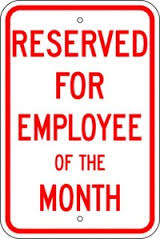The 7 mistakes that push your customers back…
 Why do your customers leave? Is it only a matter of price? Clearly not. But what are the crucial reasons that drove your customers to the competitors? Most companies assume that their customers are very price sensitive. They even craft the whole strategic marketing plan having this idea in mind. This impression is often created when one takes into account only the statistics of sales. For example, people buy more during sales. And yet, this data is not the most important and largest evidence of consumer price sensitivity, as the response to the discounts are usually misleading.
Why do your customers leave? Is it only a matter of price? Clearly not. But what are the crucial reasons that drove your customers to the competitors? Most companies assume that their customers are very price sensitive. They even craft the whole strategic marketing plan having this idea in mind. This impression is often created when one takes into account only the statistics of sales. For example, people buy more during sales. And yet, this data is not the most important and largest evidence of consumer price sensitivity, as the response to the discounts are usually misleading.
In fact there are consumers who are fully price sensitive, the so-called transaction buyers and others who are not (relationship buyers). The transaction buyer is someone who is only interested in price. These buyers have no faith in a product or brand. This type of consumer will buy from another company for difference of even one cent in the price. They have all the product catalogues and know competitors prices. They spend hours in online market research before they buy and they are satisfied when they achieve the best offer.
 On the other hand, the relationship buyers are people who are looking for a supplier who is trust-worthy. They seek for friendly companies with reliable products, those with people who respect them, remember them, do favors for them, and build a relationship on trust. Since they have found such a supplier, they tend to devote themselves. They know that they could save money by choosing cheaper companies, however, they find the process time-consuming and tedious. Those consumers remain faithful to the product and the brand for a lifetime. However, even these consumers will not hesitate to turn to the competitors when they feel that the company does not respect their needs or have negative experiences of serving or communicating with them.
On the other hand, the relationship buyers are people who are looking for a supplier who is trust-worthy. They seek for friendly companies with reliable products, those with people who respect them, remember them, do favors for them, and build a relationship on trust. Since they have found such a supplier, they tend to devote themselves. They know that they could save money by choosing cheaper companies, however, they find the process time-consuming and tedious. Those consumers remain faithful to the product and the brand for a lifetime. However, even these consumers will not hesitate to turn to the competitors when they feel that the company does not respect their needs or have negative experiences of serving or communicating with them.
So what are the main reasons that consumers leaves the company? Apart from a very small proportion of customers who either die or move (1% and 3% respectively), 14% is lured by a competitor, another 14% is directed away from the product or the company due to dissatisfaction, while the majority (68% ) leaves because of misbehavior or indifference from the company. In particular, you lose customers for the following reasons:
You change your staff too often ! Although it is tempting to believe that your customers love the product and the brand, often the  truth lies elsewhere. Consumers do not buy from companies but from your people. Your employees, your vendors. Usually dedicated customers love your employees more than the product. Given that human relationships are the lifeblood of small businesses, do not you move/rotate salesmen, sales representatives and customer service, or contacts if it is not necessary. Do whatever you can to protect and promote the relations your employees have built with your customers.
truth lies elsewhere. Consumers do not buy from companies but from your people. Your employees, your vendors. Usually dedicated customers love your employees more than the product. Given that human relationships are the lifeblood of small businesses, do not you move/rotate salesmen, sales representatives and customer service, or contacts if it is not necessary. Do whatever you can to protect and promote the relations your employees have built with your customers.
You tend to behave in a different way over your new and existing customers !The offers, discounts and incentives to attract new customers are often necessary, however, existing customers may resent the  fact that their faith is not rewarded accordingly. Think the rewards you offer to new customers and make sure that you offer the same “reward” to the existing customers, if not more.
fact that their faith is not rewarded accordingly. Think the rewards you offer to new customers and make sure that you offer the same “reward” to the existing customers, if not more.
You focus too much on price ! Being a low-cost supplier is certainly a clear competitive advantage. But you have  to be sure that at some point, you will find someone else who will offer even lower prices. Therefore, you cannot rely only on the price for the development of your company. Your goal is to provide the best value. The value lies not only in price but is an asset that can be maintained through a combination of price, consistency, service and customer relations. If the marketing strategy focuses primarily on price, then you educate your customers to constantly look for a lower price.
to be sure that at some point, you will find someone else who will offer even lower prices. Therefore, you cannot rely only on the price for the development of your company. Your goal is to provide the best value. The value lies not only in price but is an asset that can be maintained through a combination of price, consistency, service and customer relations. If the marketing strategy focuses primarily on price, then you educate your customers to constantly look for a lower price.
You try too much to increase the revenue of the same client !
Trying to sell more to existing customers is smart, but do not do it randomly. First you need to know what each clien t wants and only then try to meet those needs. Never recommend a product or service that the customer does not need. Avoid to ask “Is there anything else we could do for you?” if you do not already know the answer and you are not ready to offer a great solution. Otherwise you’re just pushy and customers hate to be pressured.
t wants and only then try to meet those needs. Never recommend a product or service that the customer does not need. Avoid to ask “Is there anything else we could do for you?” if you do not already know the answer and you are not ready to offer a great solution. Otherwise you’re just pushy and customers hate to be pressured.
You tend to forget your cornerstone ! Every business has its main products or services that are the foundation of the company. Each company also has major key – customers. Over the time, however, the main products and services as well as your key – customers are usually taken for granted, as younger and more attractive customers enjoy all your attention. Make a list of the customers who you cannot afford to lose. Then make a list of the products/services those customers buy. This list is the cornerstone of your business. Never forget, this is what keeps you alive.
You reward your employees incorrectly ! This happens usually in sales, for example where commission rates are much higher  for new clients than for existing ones. If this is the case, what is the incentive for the sales persons to work in order to maintain their existing accounts when they can be paid much more to find new ones? This approach only works if your operating system makes sure that someone else takes responsibility for maintaining long-term relationships with the existing customers. You need to consider the incentives you provide and the goals you set for your employees, and make sure you reward the results you really want.
for new clients than for existing ones. If this is the case, what is the incentive for the sales persons to work in order to maintain their existing accounts when they can be paid much more to find new ones? This approach only works if your operating system makes sure that someone else takes responsibility for maintaining long-term relationships with the existing customers. You need to consider the incentives you provide and the goals you set for your employees, and make sure you reward the results you really want.
You make problems solving a complicated procedure ! The policies and guidelines are perfect for ensuring that  employees comply with the rules, but a customer with a problem is not interested in your policies. He just wants to solve the problem! Allow employees to use policies for handling complaints as guidelines rather than as rules. Give employees the freedom to judge the case accordingly. Solving a customer’s problem or a complaint can help your business to build even stronger ties with the customer, when you give employees the freedom to do so.
employees comply with the rules, but a customer with a problem is not interested in your policies. He just wants to solve the problem! Allow employees to use policies for handling complaints as guidelines rather than as rules. Give employees the freedom to judge the case accordingly. Solving a customer’s problem or a complaint can help your business to build even stronger ties with the customer, when you give employees the freedom to do so.
To conclude, in order to build strong, trustworthy and loyal relationships with clients that are not fully price sensitive, you have to select the appropriate customer service team. The human factor plays a major role for a company and a brand in building customer loyalty. Make them feel valuable, listen and recognize their needs and do everything to meet them.
References : Smith (2013), Wille (2015), Haden (2012), www.dkconsultants.gr

